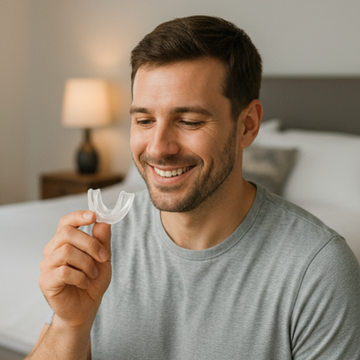
A good night’s sleep is essential for our overall health and wellbeing, but unfortunately many people struggle with sleep issues in our busy modern world. Whether you’re struggling with stress, have a busy lifestyle, or simply have trouble falling asleep, there are steps you can take to improve your sleep and recharge for the day ahead. In this blog, we’ll share 10 effective tips to optimize your sleep and promote a good night’s sleep.
1. Create a sleep-friendly environment:
Make sure your bedroom is a calming and comfortable environment. Keep the room cool, dark and quiet, and if necessary, invest in a comfortable mattress and pillows to promote good sleeping posture.
2. Follow a consistent sleep schedule:
Try to go to bed and wake up at the same time every day, even on weekends. A consistent sleep schedule can help regulate your internal clock and improve the quality of your sleep.
3. Limit screen use before bed:
Avoid using electronic devices such as smartphones, tablets and laptops at least an hour before bedtime. The blue light emitted by these screens can disrupt your sleep by suppressing the production of melatonin, the sleep hormone.
4. Practice relaxation techniques:
Try relaxation techniques such as deep breathing, meditation, or progressive muscle relaxation to calm your mind and body before bed. This can help reduce stress and anxiety and prepare you for a good night's sleep.
5. Optimize yourself sleep hygiene
Optimize your sleep hygiene by consciously choosing healthy habits throughout the day. Avoid processed foods with more than one ingredient and embrace a morning routine that includes light exercise, a nutritious breakfast, and mindfulness exercises. Stay hydrated by drinking 2-3 liters of mineral water daily. These small changes can make a big difference in your sleep quality and overall well-being.
6. 8,000 steps per day
Make sure you take at least 8,000 steps a day and set aside time for exercise in the morning or afternoon. Regular exercise can improve your sleep quality and help you fall asleep faster. However, try to avoid intense workouts right before bed, as this can overstimulate your body and mind and make it harder to fall asleep.
7. Control your breathing
When optimizing your sleep routine, try something different than the usual methods. Close your mouth with mouth tape before bed to prevent mouth breathing. Or wear a nose strip to improve oxygen intake. Small changes can make a big difference in getting a good night's sleep.
8. Limit alcohol consumption:
Although alcohol can make you sleepy, it can also disrupt your sleep by disrupting the REM sleep stages and waking you up more often during the night. Limit your alcohol consumption and avoid drinking alcohol close to bedtime.
9. Keep a sleep diary:
Keeping a sleep diary can help you identify patterns and trends in your sleep habits and identify issues that may be disrupting your sleep. Record when you go to bed, how long you sleep, and any factors that may be affecting your sleep.
10. Follow the 10-3-2-1-0 rule:
To improve your sleep quality and promote a restful night’s sleep, following the 10-3-2-1-0 rule is an effective strategy. Start by cutting out caffeine at least 10 hours before bed. Additionally, it is important to have your last meal or snack at least 3 hours before bedtime so that your digestive system has enough time to rest before you lie down. Then, it is advisable to stop all drinks and work activities 2 hours before bedtime. Also, turn off all electronic screens and dim the lights one hour before bedtime. This helps to stimulate the production of melatonin, the sleep hormone, and prepare you for a deep and restful sleep.
See below for a video explaining the 10-3-2-1-0 sleep rule:
Conclusion:
A good night’s sleep is essential to our overall health and well-being, but maintaining a good sleep routine can sometimes be challenging in our busy lives. With these 10 tips for improving your sleep, you can take steps to improve the quality of your sleep and recharge for the day ahead. Remember, finding the right balance of relaxation, healthy habits, and professional guidance is key to promoting a good night’s sleep and optimizing your overall well-being.





